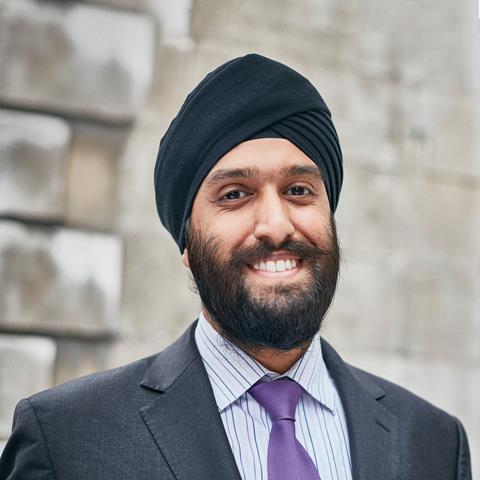Counsel at the IP litigation firm, London
As a child I was enthralled by electronics and computers. This started as an obsession with computer games and developed into an interest in computer programming and hardware. This predisposed me towards engineering and science at school. But I also realised that I enjoyed writing, and to my confusion was better at writing than I was at mathematics – a realisation that was instrumental in my route to law.

My early exposure to the legal profession was either as the butt of ‘lawyer-liar’ jokes, or wigged barristers in TV shows such as Kavanagh QC or Judge John Deed. It wasn’t until university that I was exposed to the full breadth of the profession and the myriad of practice areas and specialities.
I read computer science at university. The dotcom bubble was at its most inflated and Google and Facebook had only just launched. A typical career route for computer scientists was into the investment banks, who were investing heavily in coders. I attended an assessment day for a summer scheme at one of the banks. I didn’t do too well on a numerical reasoning test but scored the highest the bank had ever seen on verbal reasoning.
This cemented my decision to pursue a career in something more language-heavy than number-heavy. I was sharing a flat with a history undergraduate at the time and I learned that he was intending to qualify as a lawyer via a law conversion course after graduating. Until then I had no idea that this was possible.
I undertook a couple of vacation schemes over my remaining summers at some law firms and decided to follow in my friend’s footsteps. I completed my GDL and LPC in London and went on to train in the London office of a US firm. Though it did not have much of an IP litigation practice in London, its US offices were actively engaged in patent litigation. I was able to participate in those matters and realised that I enjoyed the cut and thrust of litigation work – until then, I had assumed I would end up in a non-contentious practice.
I joined Powell Gilbert in 2011. I have been fortunate enough to have been involved in many of the most high-profile tech patent litigation matters to be heard in the Patents Court.
Upon exploring a career in law, I knew immediately that intellectual property law would be my practice area. I embarked on my exploration of a legal career resolved not to waste my computer science degree, or my latent enthusiasm and interest in technology.
'We have had a paralegal line up on launch day to buy the latest phone or electronics device only to bring it to our office and smash it open to see what is inside'
It was clear that IP would allow me to bring to bear my technology skillset in my legal career. My route into IP is not atypical – the vast majority of my colleagues at Powell Gilbert in patent litigation (which is an even more specialist subset of IP) have science or engineering degrees, some up to doctorate level.
Though some patent disputes are confined to just the English Patents Court, a typical matter will involve a parallel action in at least one other European jurisdiction, often Germany, and also optionally in other jurisdictions worldwide, most typically the US. This is because patents are national rights, but companies are often active in multiple jurisdictions, so there tend to be parallel disputes in multiple jurisdictions simultaneously.
From the perspective of my practice, this requires careful coordination between the various jurisdictions to ensure that a consistent position is taken. It is common for Powell Gilbert to take on the coordination role – this involves regular calls and meetings with colleagues and the client to make sure all of the legal teams are coordinated on the latest analysis and arguments.
Patent litigation involves substantial technical analysis as well as legal analysis. It requires learning in relatively short order new technical fields to a sufficient level of detail to be able to understand the technology in dispute. This can sometimes be a challenge when under time pressure in the context of a trial timetable, but this is one of the aspects of my career that I thoroughly enjoy.
An interesting aspect of patent litigation is investigating infringement of a patent. This can sometimes get quite involved. I have lost count of how many times we have had a paralegal line up on launch day to buy the latest smartphone or electronics device only to bring it back to our office and smash it open to see what is inside.































No comments yet